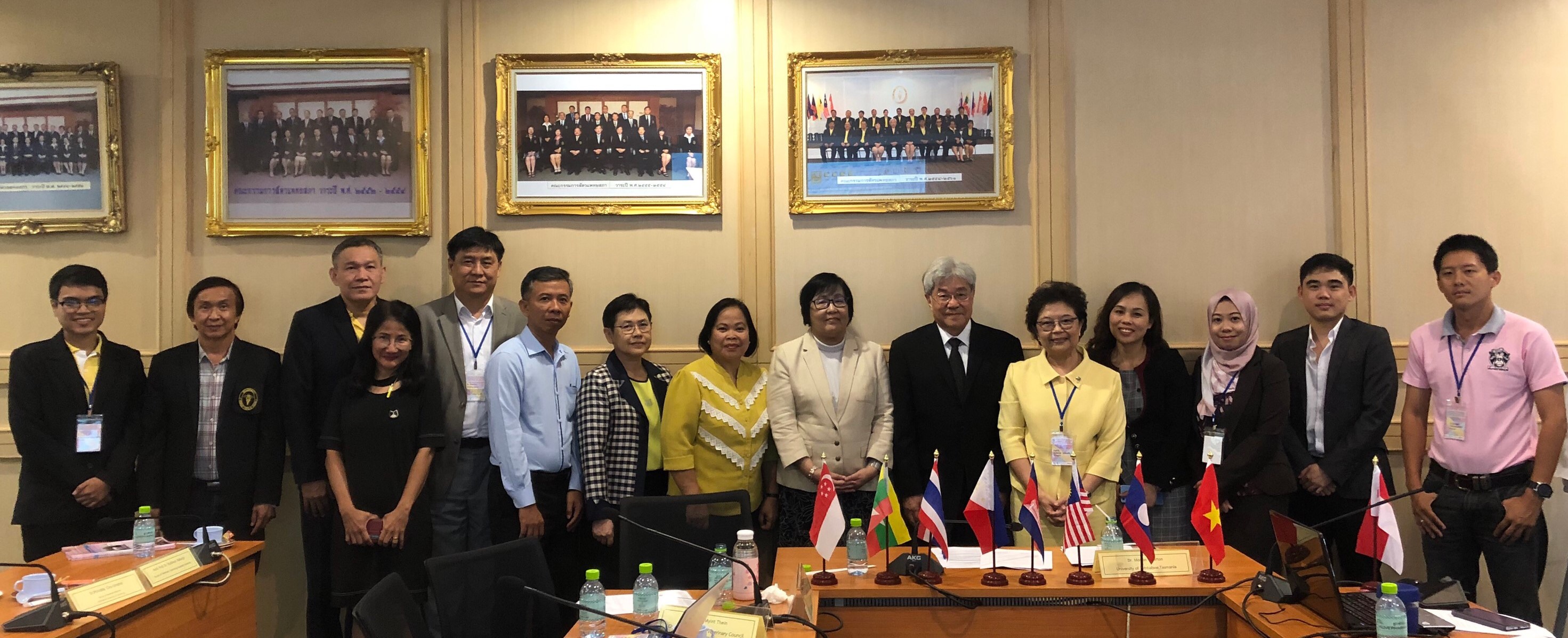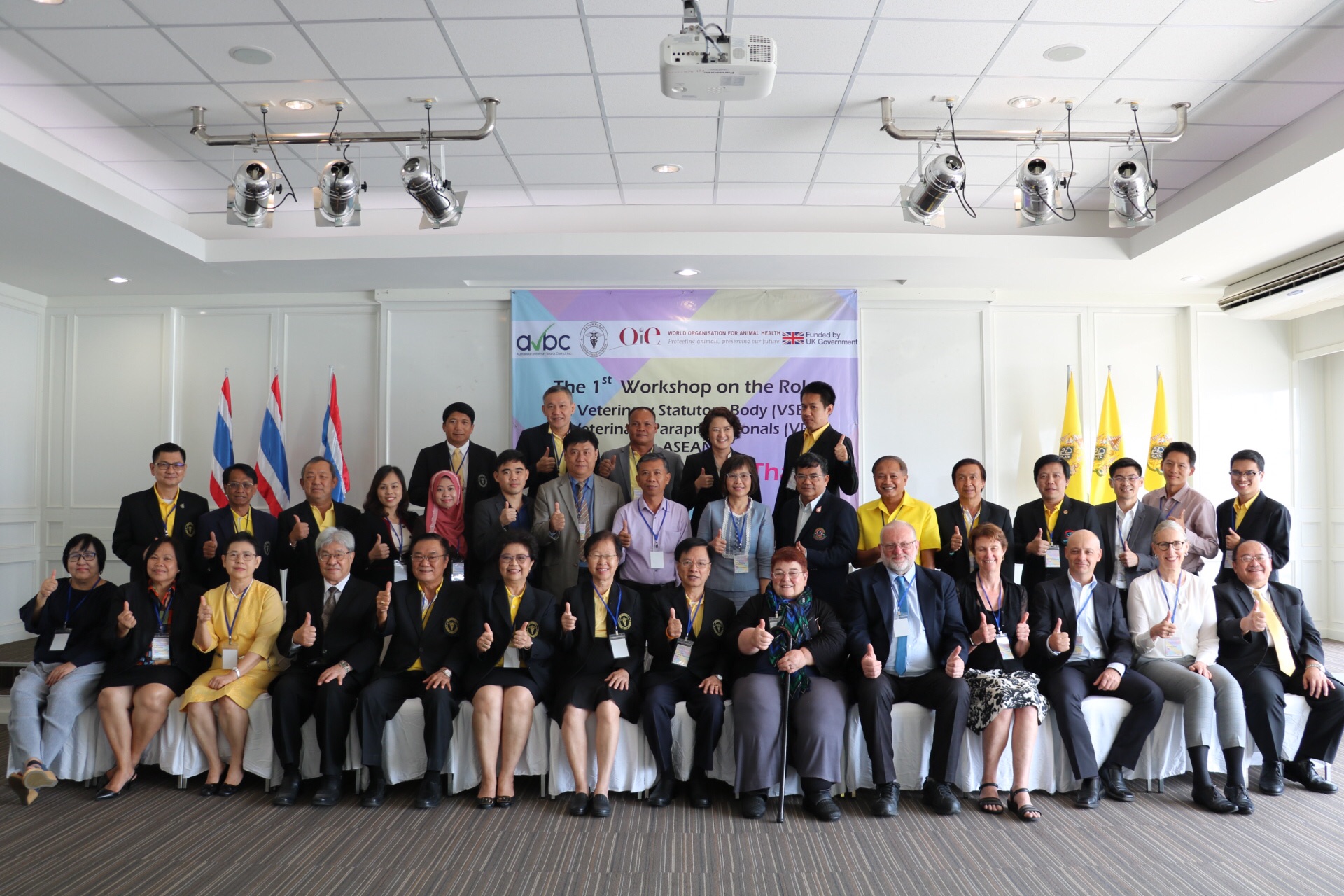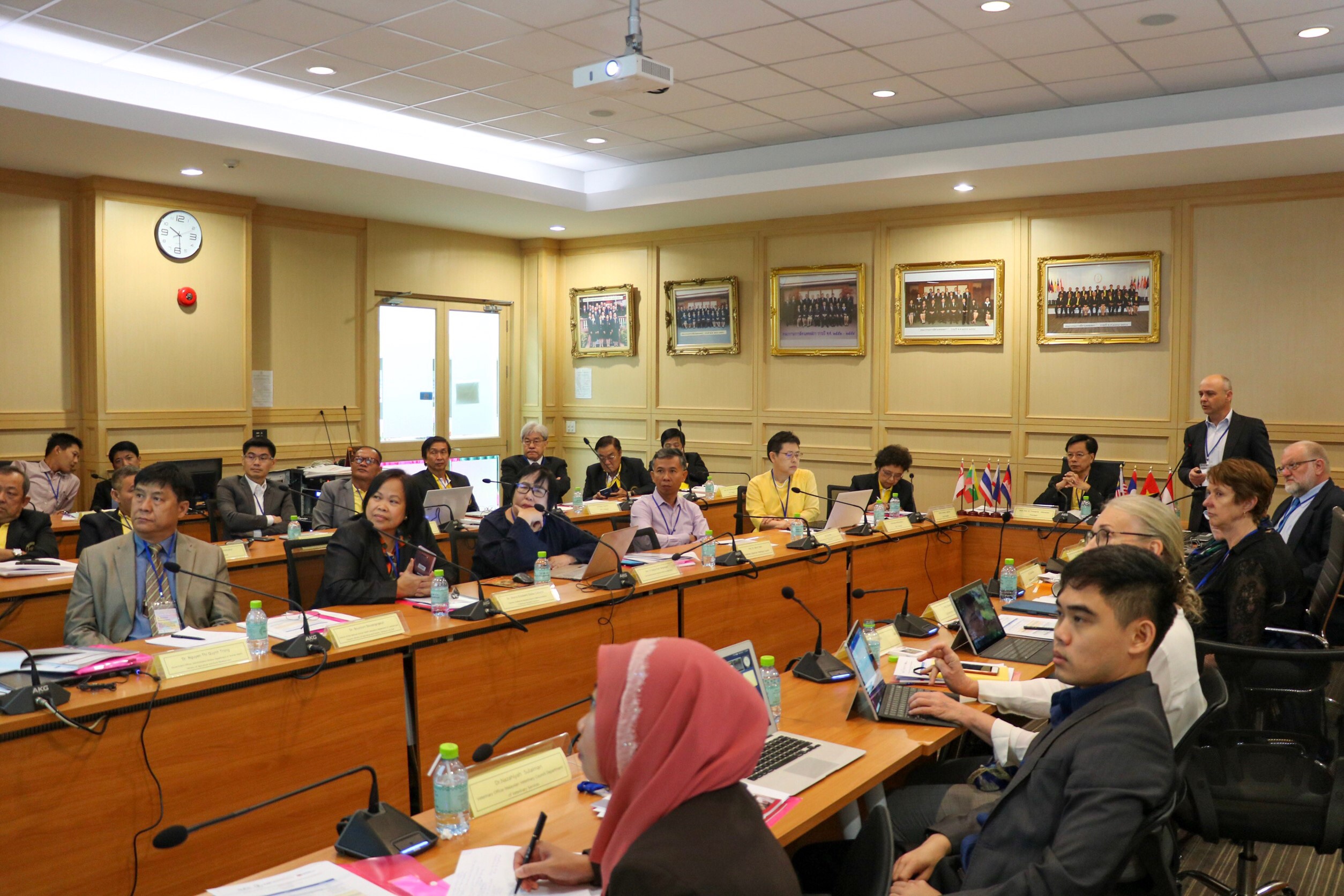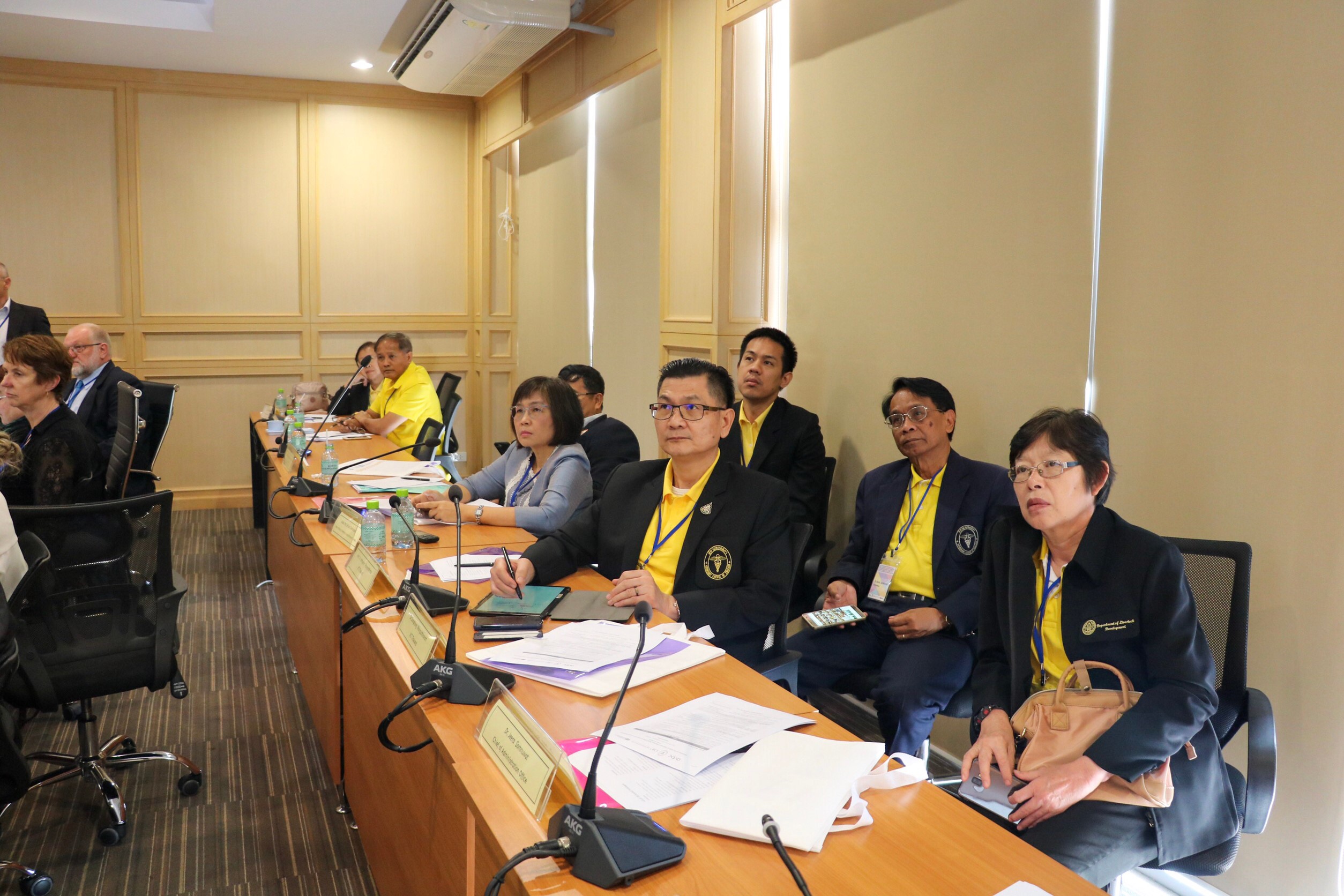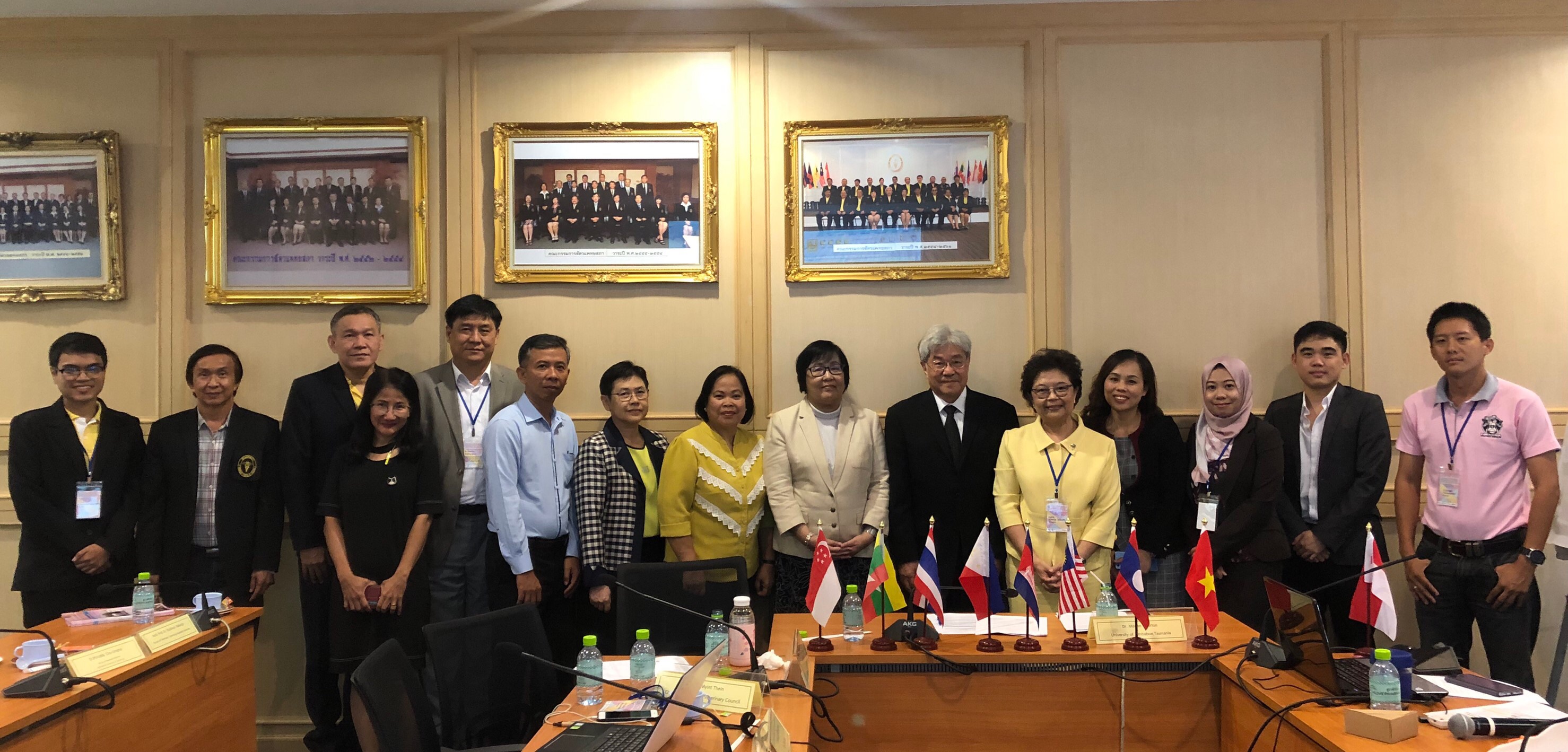The workshop was organised under the OIE VSB Twinning Project between the Australasian Veterinary Board Council Inc. (AVBC) and the Veterinary Council of Thailand (VCT) with the collaboration of the OIE Sub-Regional Representation for South-East Asia (OIE SRR-SEA). The objectives of the workshop were to: (1) enhance participants’ knowledge on the OIE Competency Guidelines and Curricular Guidelines for VPPs; (2) review the current situation of VPPs in ASEAN, notably their training, qualification and status, registration, and the challenges they are experiencing; (3) demonstrate the models for training and registration of VPPs in other regions; (4) discuss the appropriate system for VPP training and registration in ASEAN; and (5) discuss the roles of VSB and the competency of VPPs in combating antimicrobial resistance (AMR).
(Jun 2019) Workshop on the roles of VSB in ASEAN VPPs, held in Thailand
Participants attended the workshop comprising the representatives from Cambodia, Lao PDR, Indonesia, Malaysia, Philippines, Singapore, Thailand, Vietnam, AVBC, VCT and OIE. The workshop addressed the activities that VPPs could/should perform, how and by whom they should be registered, and the curricula and pedagogy that is appropriate for their training.
Presentations delivered in this session included the OIE activities related to VPPs particularly the OIE Competency Guidelines for Veterinary Paraprofessionals and the OIE Curricula Guidelines for Veterinary Paraprofessionals, the definition of a VPP, roles and activities of VPPs and their relationship with veterinarians as well as VPPs and veterinary therapeutic products. Country presentations were given by the representative of each country overviewing the key roles and tasks performed by VPPs in their country. Example of paraprofessional veterinary activity in Zimbabwe was informed and veterinary nurses in the context of South-East Asia particularly in Thailand was highlighted. Group discussion was conducted on the VPP activities to be ‘registered’ and ‘unregistered’, and how VPPs can contribute to the management of AMR. The suggestion was the VPP activities carried out according to the acts of veterinary science/medicine should be registered e.g. vaccination for outbreak/disease management, emergency response, artificial insemination, meat inspection, etc. However, the VPP activities on routine vaccination under veterinary supervision and others depending on the context of country should not be registered. In contribution to AMR management, VPPs are required to comply with legislation relevant to AMR, have education and training on AMR issues, implement antimicrobial stewardship and provide extension work on AMR and AMU.
The model of approval and authorisation of VPPs in Western Australia was illustrated. The current options of VPP registration and the OIE perspective on VPP registration were introduced. The representative of each country presented the legislative environment of VPPs in their country and commented if the legislation fit for purpose. The system of Western Australia in assessing qualifications and experience for registration of VPPs and the skills assessment for veterinary registration of AVBC particularly for foreign veterinarian were demonstrated to participants for consideration if these systems can be adapted for VPP registration in ASEAN. Group discussion was conducted on the legislation and registration of VPPs. The groups suggested that the countries that have not yet developed veterinary legislation can bring VPPs into primary legislation, whilst others will have to modify the existing legislation or manage VPPs by regulations under primary legislation. Perhaps the VSB should register VPPs if they are doing regulated ‘veterinary acts’. Veterinary nurse activities largely fall into this category. Other ‘acts’ may not require VSB registration but can be regulated as required through Ministry of Agriculture. The low level VPP acts can be defined in legislation as not requiring registration, or as a ‘low level’ capacity.
Examples of sub-degree qualifications related to livestock production system for VPPs and degree-level qualifications in veterinary nursing and veterinary technology were elaborated. The training methodologies suited to courses related to livestock management for livestock health advisors, farm animal veterinary nurses and technicians for both degree and vocational training were explained. The formal and informal training programmes for VPPs currently operated in each country were described. Discussion was conducted on VPP training to be feasible in each country. It was summarised that VPP training needs to be targeted at the roles and aligned with the ASEAN tertiary qualifications framework.
Group discussion was conducted for action planning of participants in pursuing the outputs of this workshop. The proposed plan included defining what are ‘veterinary acts’ and clarifying what roles of VPPs are. If VPPs are working under veterinary acts, they need to be registered with VSB (this includes veterinary nurses), if not, they only need to be registered by competent authority. Defining ‘veterinary acts’ across ASEAN may be needed using the OIE guidelines as reference. Defining the roles of VPPs and community animal health worker (CAHW) is needed including the job description for non-governmental animal health workers, especially with experience rather than formal qualifications. VPP training programmes need to be certified by VSB, and continuing education and/or skills test are required for VPP certificate renewal. Participants agreed to report the outputs of this workshop to their Ministry of Agriculture with emphasising the need to manage VPPs and the need for a statutory body to do so.
The workshop ended up with the conclusion and recommendations which is useful to OIE, VSB or VSB equivalent body and Veterinary Services of Member Countries in planning activities relevant to VPP competency, training and registration.
